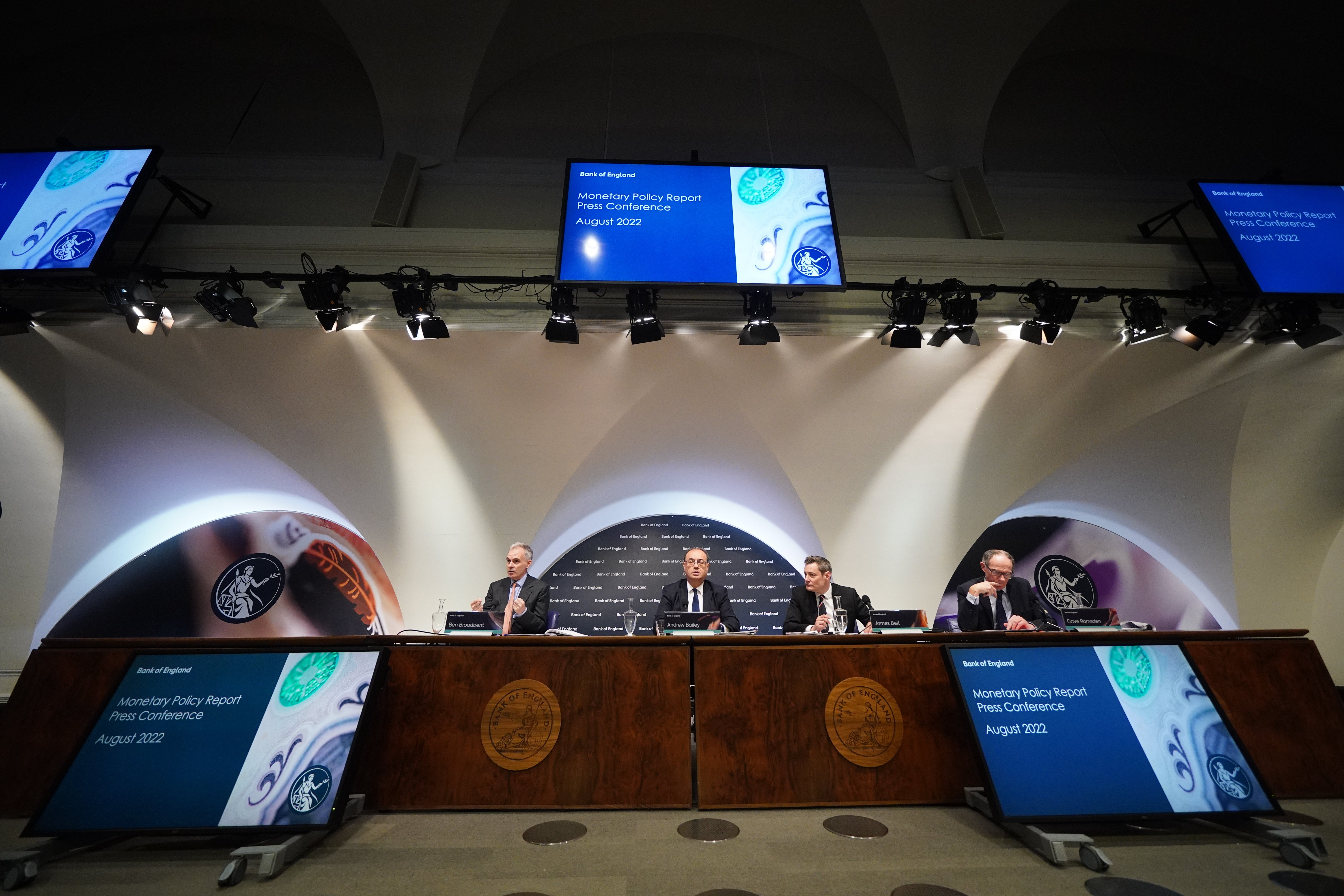Soaring inflation pressures Bank to further hike interest rates, economists say
The Bank of England MPC is now likely to hike interest rates from 1.75% to 2.25% when they next meet in September.

Your support helps us to tell the story
From reproductive rights to climate change to Big Tech, The Independent is on the ground when the story is developing. Whether it's investigating the financials of Elon Musk's pro-Trump PAC or producing our latest documentary, 'The A Word', which shines a light on the American women fighting for reproductive rights, we know how important it is to parse out the facts from the messaging.
At such a critical moment in US history, we need reporters on the ground. Your donation allows us to keep sending journalists to speak to both sides of the story.
The Independent is trusted by Americans across the entire political spectrum. And unlike many other quality news outlets, we choose not to lock Americans out of our reporting and analysis with paywalls. We believe quality journalism should be available to everyone, paid for by those who can afford it.
Your support makes all the difference.New inflation figures are likely to ramp up pressure on the Bank of England to once again rapidly hike interest rates when its decision-makers next meet, several experts have said.
The Bank of England’s Monetary Policy Committee (MPC) is to make another interest rate decision next month.
Many had already expected a 50 basis point (bp) rise, from 1.75% to 2.25%.
Economists said on Wednesday that the case for the second such rise in a row was strengthened by July’s inflation numbers.
Just two weeks ago, when it last met, the MPC had assumed that inflation would hit 9.9% in July. The actual measurement from the Office for National Statistics was 10.1%.
We expect today’s CPI data to add to existing pressure for the Bank to act more decisively, perhaps by increasing its headline policy rate by 50 basis points in its next meeting in September
“We expect today’s CPI data to add to existing pressure for the Bank to act more decisively, perhaps by increasing its headline policy rate by 50 basis points in its next meeting in September,” said Jake Finney, an economist at consultancy PwC.
Allan Monks from JP Morgan said that the new inflation reading could spark speculation on whether the bank would hike rates as far as 2.5% at the next meeting
“The breadth of the gains across many categories is striking, including some where there is no obvious reason to dismiss the move,” he said on Wednesday.
“Combined with the strength in nominal pay revealed in yesterday’s report, there is plenty of evidence of the kind of persistence and second-round effects the MPC is watching out for.
“This makes a 50bp hike in September seem almost inevitable, and perhaps there should be more speculation about whether a larger 75bp hike will be considered.”
Their comments were echoed by EY Item Club’s chief economic advisor Martin Beck, who said that the latest reading increases the chance of a 50-point rise.
ING’s James Smith forecast rates would hit 2.25% and could rise further in November, depending on how the new prime minister reacts to the rapidly worsening situation.
On BBC Radio 4’s Today programme former MPC member Andrew Sentance said that the Bank was falling behind and that it might need to hike rates to between 3% and 4% by the end of the year.
Mr Sentance served on the committee during the 2008 financial crisis and is now a senior adviser at Cambridge Econometrics, a consultancy.
However ING’s James Smith and Samuel Tombs at Pantheon Macroeconomics pointed out that the MPC is often most interested in so-called “core inflation” which excludes price raises in energy, food, alcohol and tobacco.
In July this hit 6.2%, up from 5.8% the month before.
“The path of core CPI inflation … will matter most to the MPC, and we expect it to fall sharply towards the end of this year, somewhat sooner than the committee expects,” Mr Tombs said.
“For a start, a wide range of commodity prices have nosedived over the last three months, and shipping costs now are 33% below their 2021 peak.
“Consumers should see the benefits around the turn of the year.”
This could convince the decision-makers to stop hiking interest rates sooner than investors currently expect, he added.
Several experts also said that inflation might be tempered this winter depending on how the Office for National Statistics factors in Government support.
All households are set to be given a £400 rebate off energy bills from October – paid in six monthly instalments.
If the ONS decides to treat this as a reduction in bills, rather than cash payment to households, it could help to keep inflation lower.
However Mr Tombs said he expects the support to be treated as a cash payment. The ONS will announce its decision on this on August 31.